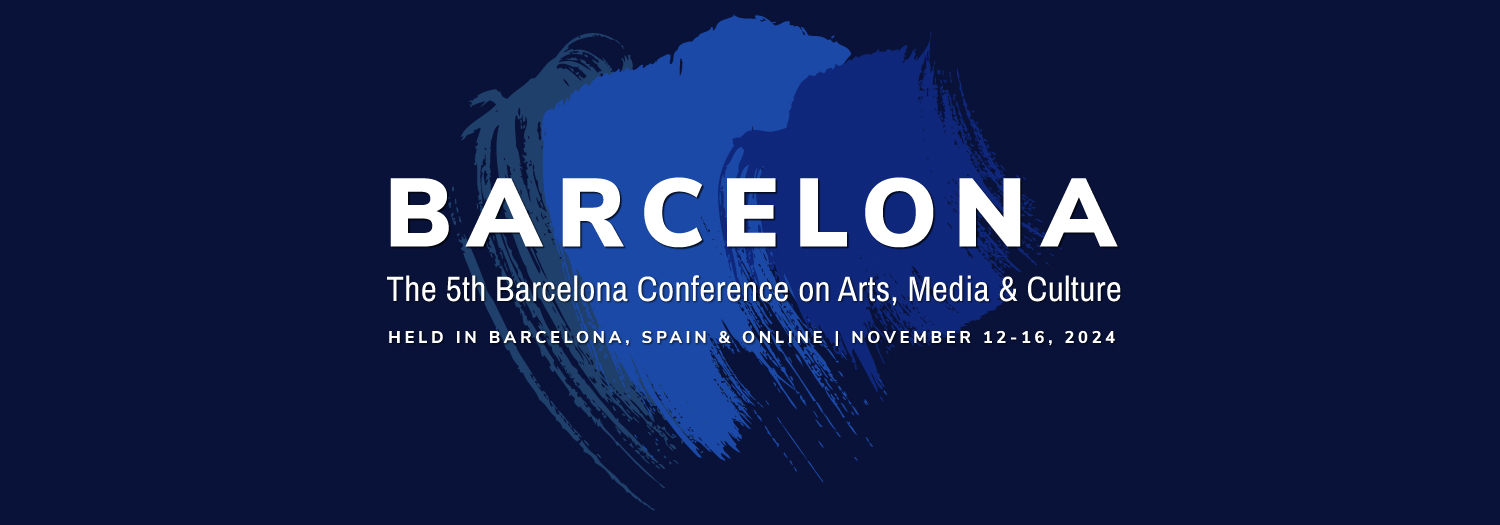Conference Outline
*Please be aware that the above schedule may be subject to change.
14:30-16:30: Conference Cultural Tour | Sagrada Familia
This is a ticketed event
Location: Hotel Barcelona Condal Mar Affiliated by Meliá
09:00-10:00: Conference Check-in (coffee & light snacks provided) | Basement Foyer Area
09:55-10:00: Welcome Announcements | Sants, Gràcia & Eixample (Basement)
10:00-10:30: Welcome Address & Recognition of IAFOR Scholarship Winners
Joseph Haldane, The International Academic Forum (IAFOR), Japan
Sue Ballyn, University of Barcelona, Spain
Anne Boddington, Middlesex University, United Kingdom
10:30-11:00: Keynote Presentation | Sants, Gràcia & Eixample (Basement)
11:00-11:30: Keynote Presentation | Sants, Gràcia & Eixample (Basement)
11:30-11:45: Conference Photograph
11:45-13:15: Lunch Break (lunch provided) | Mediterranean Restaurant
13:15-13:45: Keynote Presentation | Sants, Gràcia & Eixample (Basement)
13:45-13:50: Short Break
13:50-14:35: Panel Presentation | Sants, Gràcia & Eixample (Basement)
14:35-14:50: Coffee Break (coffee provided)
14:50-15:20: Keynote Presentation | Sants, Gràcia & Eixample (Basement)
15:20-15:25: Short Break
15:25-15:55: Keynote Presentation | Sants, Gràcia & Eixample (Basement)
16:00-17:00: Conference Poster Session & Welcome Reception | 1st Floor Presentation Rooms
20:00-22:00: Conference Dinner | Pulpería Can Lampazas
This is a ticketed event
Location: Hotel Barcelona Condal Mar Affiliated by Meliá
09:00-09:30: Onsite Check-in
09:30-11:10: Onsite Parallel Session 1
11:10-11:25: Coffee Break
11:25-12:40: Onsite Parallel Session 2
12:40-13:40: Lunch Break
13:40-15:20: Onsite Parallel Session 3
15:20-15:35: Coffee Break
15:35-17:15: Onsite Parallel Session 4
Location: Hotel Barcelona Condal Mar Affiliated by Meliá
09:00-09:30: Onsite Check-in
09:30-11:10: Onsite Parallel Session 1
11:10-11:25: Coffee Break
11:25-13:05: Onsite Parallel Session 2
13:05-14:05: Lunch Break
14:05-15:45: Onsite Parallel Session 3
15:45-16:00: Coffee Break
16:00-17:15: Onsite Parallel Session 4
Location: Online
09:00-09:05: Message from IAFOR
09:05-10:45: Online Parallel Presentation Session 1
10:45-11:00: Break
11:00-12:40: Online Parallel Presentation Session 2
12:40-12:55: Break
12:55-14:35: Online Parallel Presentation Session 3
14:35-14:40: Message from IAFOR
The draft version of the Conference Programme will be available online on September 30, 2024. All registered delegates will be notified of this publication by email.
Featured Presentations
Important Information Emails
All registered attendees will receive an Important Information email and updates in the run-up to the conference. Please check your email inbox for something from "iafor.org". If you can not find these emails in your normal inbox, it is worth checking in your spam or junk mail folders as many programs filter out emails this way. If these did end up in one of these folders, please add the address to your acceptable senders' folder by whatever method your email program can do this.
Attendee Guide
Please carefully read the Attendee Guide.
Previous Programming
View details of programming for past BAMC conferences via the links below.
